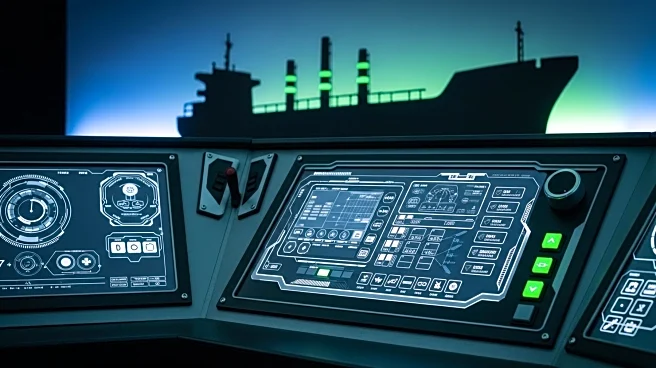What's Happening?
ABB has entered into a term sheet agreement with SwitcH2 to provide automation and electrification solutions for a floating production, storage, and offloading (FPSO) unit dedicated to producing green ammonia from green hydrogen. The FPSO will be stationed off the coast of Portugal and powered by renewable electricity from the national grid. It will feature a 300 MW electrolyzer capable of producing up to 243,000 tons of green ammonia annually. ABB's solutions include a prefabricated eHouse, electrical distribution systems, and an integrated control and safety system with cybersecurity integration. The green ammonia produced will be used as a marine fuel or converted back to hydrogen for industrial use, addressing the shipping industry's greenhouse gas emissions.
Why It's Important?
The collaboration between ABB and SwitcH2 represents a significant advancement in the decarbonization of the shipping industry, which is responsible for approximately two percent of global greenhouse gas emissions. Green ammonia is emerging as a viable solution for reducing emissions in hard-to-abate sectors. The project highlights the growing demand for low-carbon marine fuels and the potential for green ammonia to play a crucial role in achieving sustainability goals. This initiative could set a precedent for future projects aimed at reducing the environmental impact of maritime activities.
What's Next?
Front-end engineering and design work for the FPSO is expected to continue until summer 2026, with a Final Investment Decision anticipated by the third quarter of 2026. Detailed engineering and construction are scheduled to follow in 2027. The successful implementation of this project could lead to increased interest and investment in similar green ammonia production facilities, further promoting the use of sustainable fuels in the shipping industry.
Beyond the Headlines
The development of green ammonia production facilities not only contributes to environmental sustainability but also has economic implications. By reducing reliance on traditional fossil fuels, the shipping industry can potentially lower operational costs and mitigate the risks associated with fluctuating oil prices. Additionally, the integration of advanced automation and cybersecurity measures ensures safe and efficient operations, setting a new standard for future maritime projects.










